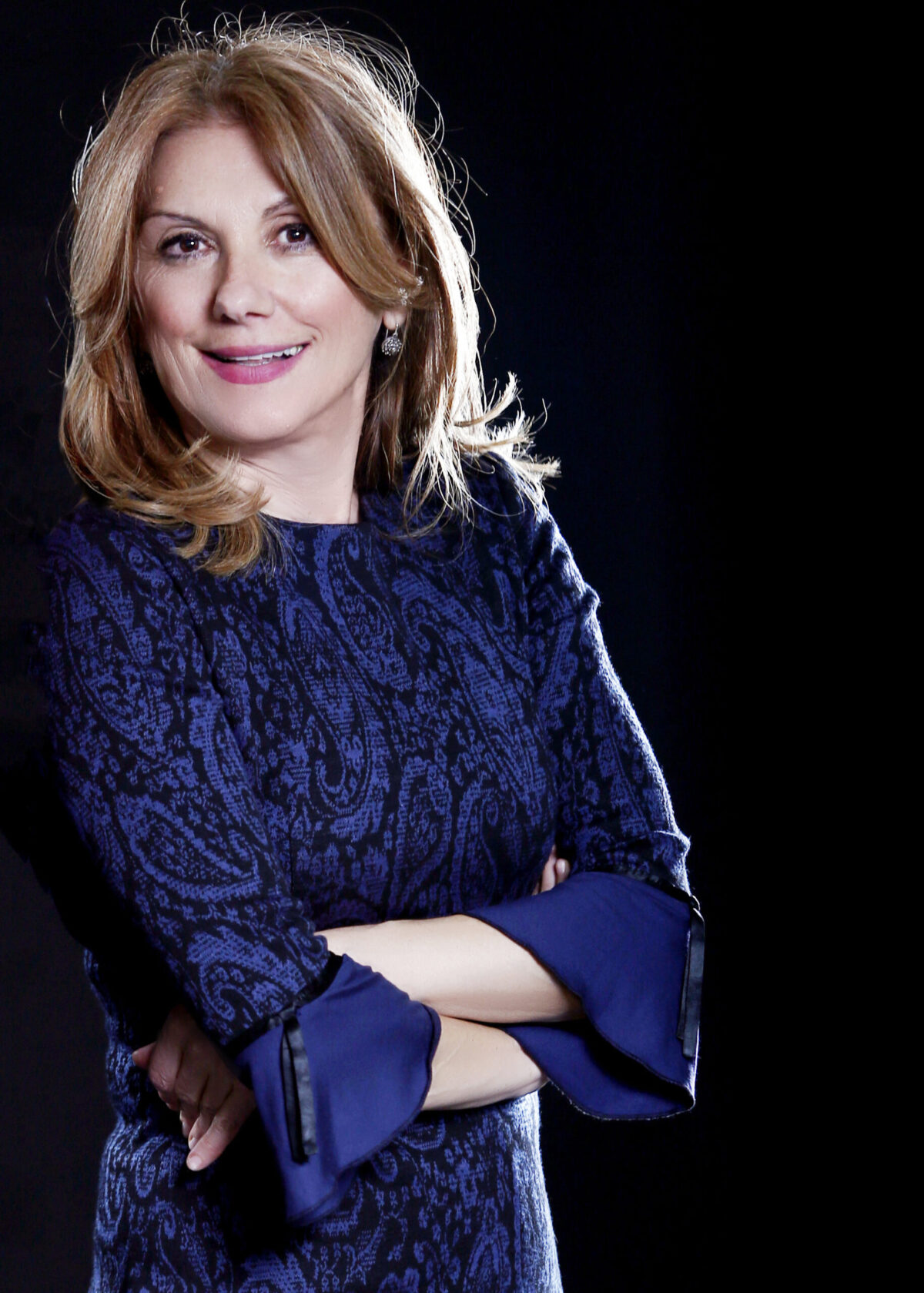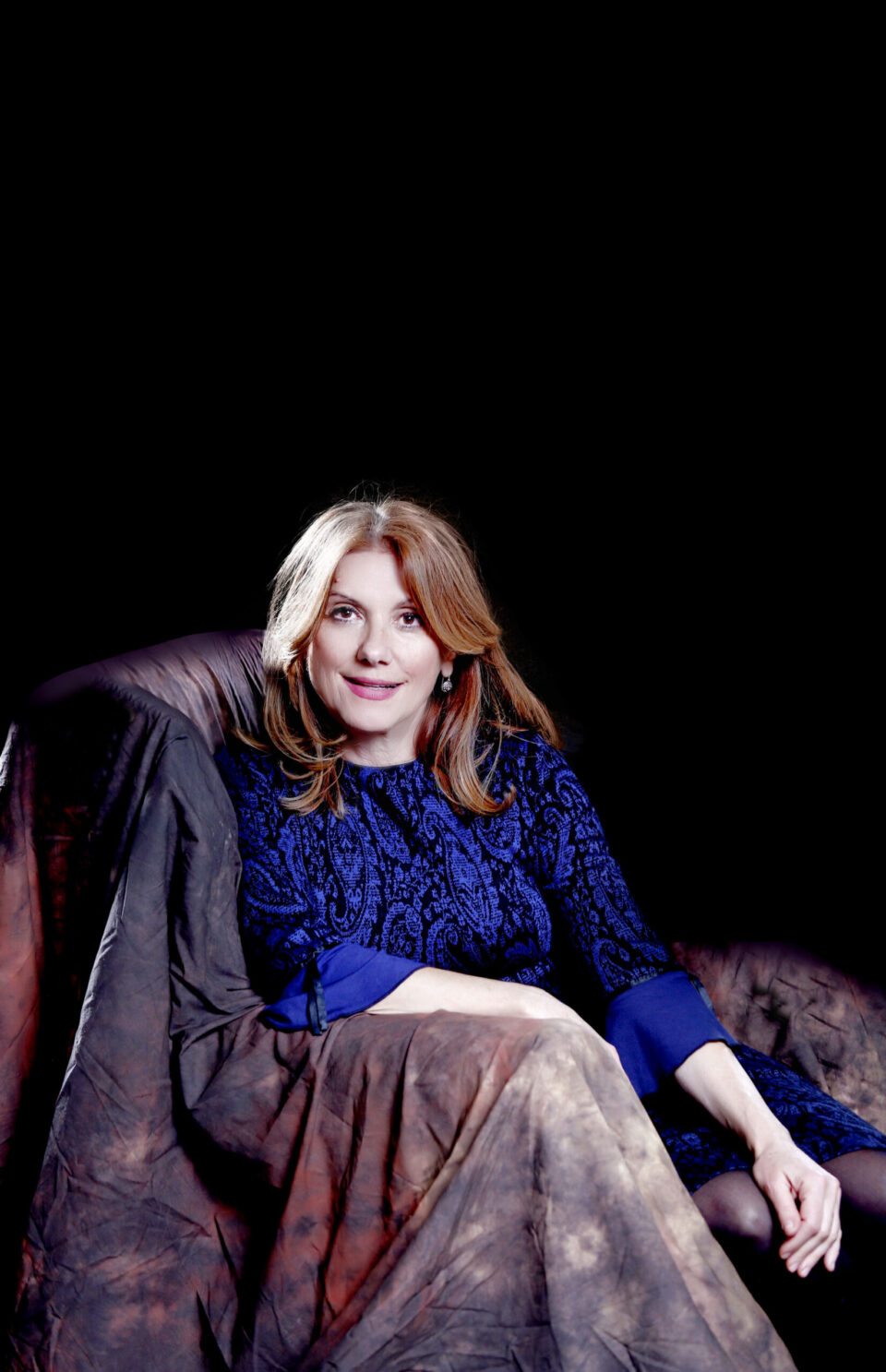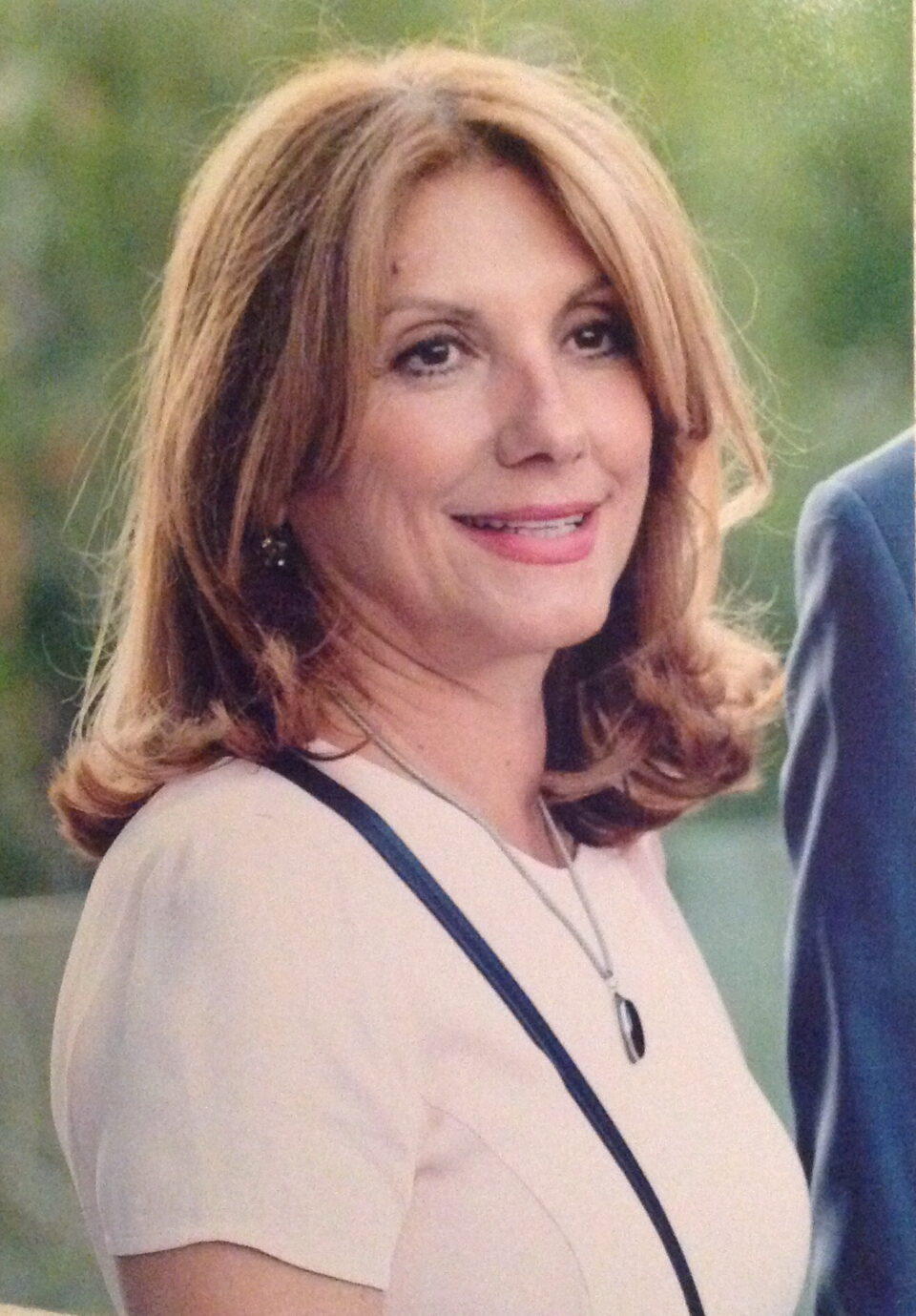People have begun to only follow media that support their personal views which are often shaped by these same media, and people whose views they agree with
 Interview by: Dragan Nikolić
Interview by: Dragan Nikolić
Vesna Mališić is a renowned Serbian journalist and editor known for her extensive career in the media industry. Despite facing challenges throughout her career, including conflicts with management that led to her departure from NIN after 14 years, she continues to influence Serbian journalism with her bold and insightful writing. In an interview with our magazine, she talks about the lack of media freedom and the position of journalists in our society.
We cannot avoid starting with the recent event when our colleague Vuk Cvijić, a journalist, was attacked. Is this attack a reflection of our society, and what message does this frightening attack send to citizens and journalists?
Critically-minded journalists in Serbia do not live in a friendly environment at all. They are verbally targeted by authorities who see them as political opponents, insulted, constantly accused, and disqualified by tabloids, social media bots, and encouraged individuals who attack journalists to prove their patriotism or loyalty. This is the atmosphere in which professional media operates. Quite depressing. Statistics show that, for example, in the first six months of 2023, there were 42 attacks on journalists. Only 11 attackers were identified. Professionals in this high-risk profession must count on such an environment.
The attack on Vuk Cvijić, however, is unprecedented. It is the first time that a journalist from a pro-government tabloid physically assaulted another journalist, in broad daylight, in the center of Belgrade, which is covered by cameras. One would think it would be easy to establish what happened. But there is no footage. Instead of a swift investigation and truth, we have politicians who downplay the event and attempt to discredit Vuk Cvijić. Journalist Uglješa Bokić from the Danas newspaper was attacked on election day in Novi Sad while trying to talk to young people leaving the premises where the call center of the ruling Serbian Progressive Party was located. Not to mention the attacks on Dinko Gruhonjić and others. These days, our colleague Marko Lovrić received death threats because of his report from Jasenovac, where he spoke about how obsession with numbers diminishes true reverence for the victims. Unfortunately, we have become a society where violence is metastasizing. Hence, it is not surprising that the latest annual report from Reporters Without Borders notes that media freedoms in Serbia have reached their lowest point since the creation of the World Press Freedom Index in 2002, i.e., in the last 22 years. Serbia ranks 98th out of 180 countries on the same list, second to last among all EU member states and candidate countries. Therefore, the attack on Vuk Cvijić is a sign that the state protects the perpetrators. Anyone who wants to engage in investigative journalism must take this into account.”
Colleague Cvijić was supported by professional associations, certain editorial teams, and colleagues, but one gets the impression that this event has drawn a line between pro-regime, so-called, media, and those that are not. How dangerous is this social and professional division?
Indeed, in regime-affiliated media, there was relativization or denial of the attack or simply silence—it didn’t happen. In other media, there was full coverage. However, this event shows the feudalization of the media environment in which we live. The division is sharp. People have begun to only follow media that support their personal views which are often shaped by these same media, and people whose views they agree with. An isolated media world has been created where individuals only receive confirmation of what they already believe. This is an ideal position for political manipulation, where any lie can be portrayed as truth and vice versa, and where reality is tailored to fit the current government’s agenda. Criticism, doubt, dilemma, and debate have been expelled. Such media have become safe havens for an acceptable and approved simulated reality. The damage such media cause to society is immense because they are no longer allies of the public and public interest, but of political factions; they are not guardians of truth but of political power.
In the first six months of 2023, there were 42 attacks on journalists
The paradox of this entire story is that we live under the illusion that information is abundant, more information. However, this does not prove that we are well-informed. On the contrary, the public is under pressure from an incredible amount of unverified or manipulative information, making it nearly impossible to distinguish truth from falsehood and to adequately link cause and effect. When media are so divided, the potential for manipulation is clear. This government has created this atmosphere and actively exploits it. Divisions deepen at all levels because a divided and discordant society is easier to govern. We have reached a point where dialogue is a theoretical concept; we move in parallel monologues. Any dissenting opinion is perceived as hostile. Historian Andrej Mitrović was right long ago when he said that here, wars never cease—they just change forms. Today, we are in a brutal civil war without weapons.”
 How can the journalism profession protect itself from so-called journalists and propagandists?
How can the journalism profession protect itself from so-called journalists and propagandists?
Unfortunately, professional journalism alone isn’t enough of a barrier. Propagandists spread like dirty water and contaminate everything, encouraged to serve political factions. They receive advertisements, money from grants, and who knows what other privileges. On the other hand, professional media are financially and otherwise exhausted. However, they are “held up” by professional zeal, a belief that they are doing good, that they are allies of truth, and that it makes sense regardless of the cost. Did you know that no one (or hardly anyone) is allowed to advertise in Radar? It’s a weekly magazine with a larger circulation than all other weeklies combined. There’s no commercial logic here, only political.
Your departure from NIN, along with the majority of the editorial team, caused a stir in the domestic journalism scene. Despite much being said about it already, is there anything you would add now, with some distance in time?
It has never happened before that an entire editorial team, along with all external collaborators, proofreaders, and the secretary, left a media outlet in one day because they wanted to protect freedom and professionalism. It’s important for me to always repeat this and remind everyone of the moment when, at the end of December, one by one they decided to resign from NIN without being sure where they would continue their professional journey. Across the street from the office, editors and journalists who were tenants, had children, mortgage payments, elderly and sick parents… They could have found every possible excuse to accept soft collaboration for a secure salary. But they didn’t! They didn’t hesitate. They didn’t calculate. They preserved their professional integrity. And they brought it to the Radar weekly. It’s important not to forget this. So, it can be done this way. One doesn’t have to bow their head and compromise their principles. Even though it’s the harder path less traveled.
When media are so divided, the potential for manipulation is clear
Is there freedom in society without freedom of the media?
One sociologist said, “If journalism is not realized as a free form of existence, its essence is called into question.” That’s accurate. There is no free society without free media. But conversely, there is no free media if society itself is not free. These are interconnected truths. At this moment, free media exist as enclaves in a captive society. An environment has been created where the connection between centers of political power and the media is unbearably close. Instead of expanding the space of freedom, we see the expansion of violence, which has become a mode of communication. Worst of all, there seems to be no end in sight to this trend.
The public accesses information uncritically and as mere consumers. Knowing this, is it enough to spread the truth to have independent and free media, or is something practically impossible needed—such as a change in the consciousness of the entire society?
There’s a theory suggesting that to emerge from a crisis, a society needs three times the duration it spent in crisis. If we’ve been in crisis and decline for thirty years, it will take a century to recover. Unfortunately! For a society to be normal, tolerant, and democratic, there must be willingness from political elites. This must be their value. Yet, for our elites, society has been transformed into a wild tribe ideal for manipulation. Fear, conflict, feelings of being hated, envied, undermined… And relativizing what is falsehood and what is truth. With such a populace, you can do as you please because it cannot judge adequately. There are no media as allies of truth to help orientate them in time and space. Hence, our media landscape today resembles a battlefield.
Professional media are financially and otherwise exhausted
In the digital era, the written word and traditional journalism are almost extinct. How do you view new formats like news through social media, from unverified sources? Have TikTok and Instagram generations suffocated journalism?
I believe real journalism is making a comeback because there are still people who want to read serious analyses, reports, articles, and investigations. Radar is a prime example of this. And the “Great Stories” in Nedeljnik, not to mention the trends in major global media outlets that are bringing back serious reading. Of course, hybrid forms mediated through social media and the tyranny of urgency prevail. Journalism is in a transition process, and where all this will end up remains to be seen.
Vesna Mališić was born in Kotor. She completed her high school education in Herceg-Novi and graduated from the Faculty of Political Sciences in Belgrade. Since 1982, she has been involved in journalism, initially as a contributor and later as a journalist and editor for several reputable weekly magazines. She worked as a journalist and editor at Duga magazine (1983-1999), leaving before the bombing of Yugoslavia when the Ministry of Information of Serbia introduced censorship. She then served as the editor at Blic News Weekly (1999-2001), followed by Editor-in-Chief of Prestup magazine (2001-2008), commentator and analyst editor at Blic Daily (2008-2009), and deputy Editor-in-Chief at NIN weekly (2009-2024). Due to changes in ownership and a narrowing space for independent journalism, she resigned from NIN along with the entire editorial team. Since 2024, she has been the Editor-in-Chief of Radar Weekly. Vesna Mališić is a recipient of the Knight of the Call award for professional and independent journalism.
She has authored several books including “Man of Fear” (Čovek od straha, 1986, Partizanska knjiga), “Conversations About Crisis” (Razgovori o krizi, 1988, Naučna knjiga Beograd), “Dream about Serbia” (San o Srbiji – talks with Zoran Đinđić, 2004, Čigoja štampa), and “Cardboard Box” (Kutija od kartona, 2007, Službeni glasnik). She is a member of the Independent Journalists Association of Serbia and the International Federation of Journalists (IFJ).
